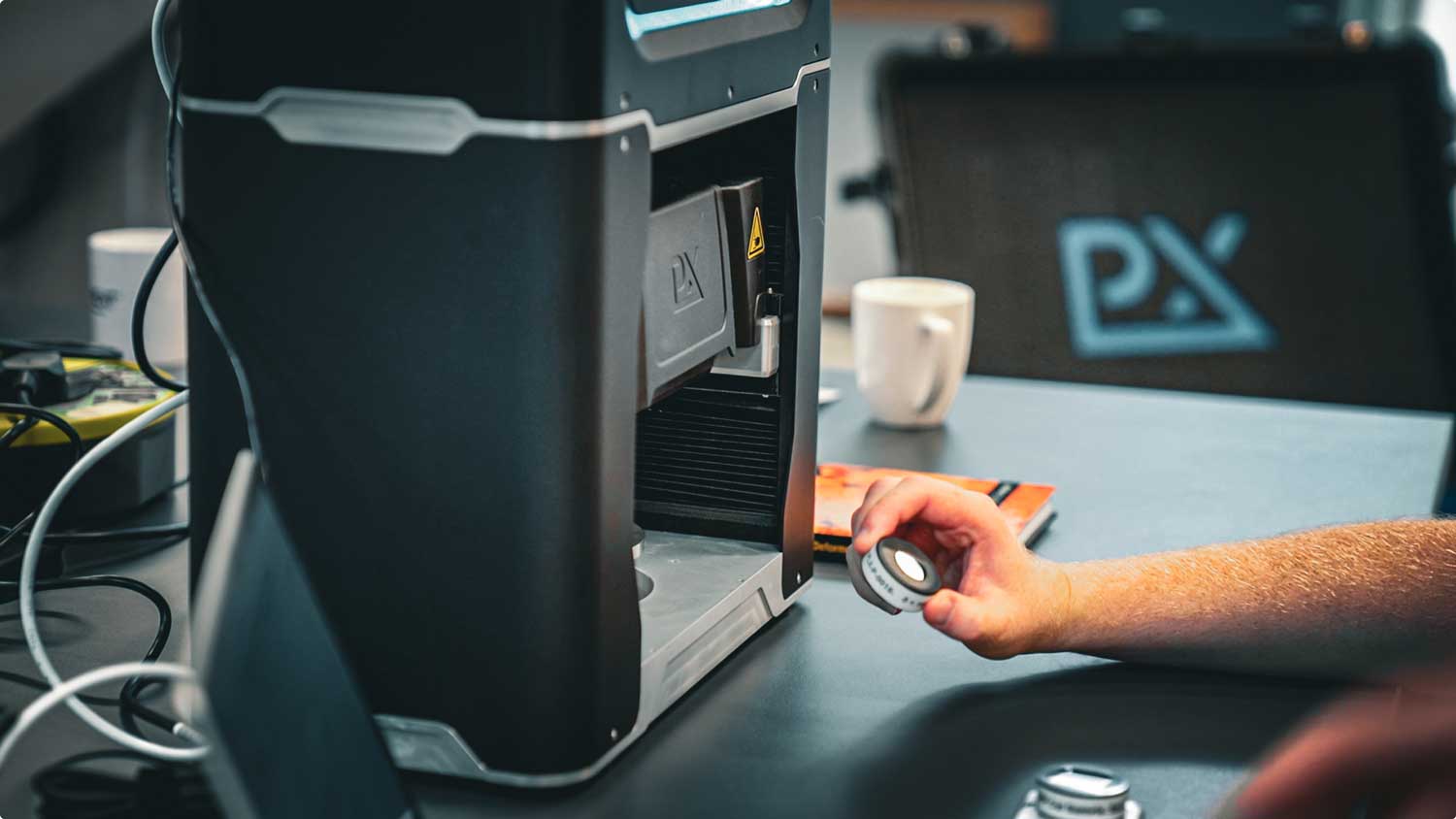Plastometrex, a leading provider of advanced mechanical testing solutions, has provided Renishaw, a renowned OEM in the field of additive manufacturing, with its latest technology for mechanical testing.
The collaboration focuses on integrating Plastometrex’s proprietary PIP (Profilometry-based Indentation Plastometry) technology into Renishaw’s testing processes to increase precision and efficiency in analyzing mechanical properties and part reliability in 3D printing.
Tensile strength testing presents several challenges in the additive manufacturing sector. The production of tensile specimens takes up significant portions of project timelines and budgets, while separately printed tensile specimens often do not fully represent the mechanical properties of complex additively manufactured parts, potentially compromising the reliability of the data.
Renishaw’s adoption of Plastometrex’s PIP test method directly addresses these challenges. The PLX benchtop enables fast, direct testing on different sections of AM parts, providing comprehensive stress-strain curves within minutes. This method provides a more accurate assessment of a part’s mechanical properties and complements Renishaw’s existing testing procedures.
With the ability to test an additively manufactured part directly and at several different points, the PLX benchtop Renishaw provides a much more detailed understanding of a part’s mechanical properties and optimizes the testing process. The test itself is largely automated, takes less than five minutes and requires minimal sample preparation. In addition, the elimination of samples and the associated material and processing enables cost savings in mechanical testing for Renishaw.
Benjamin Haigh, Materials Scientist at Renishaw, commented: “We can now use cubes built for product development for additional testing, saving us time and money. Additionally, the PLX-Benchtop can generate mechanical data for a wider range of parameters.”
Jed Robinson-Wall, Materials Science graduate, added: “PIP technology is a fantastic complement to our existing mechanical testing regime. It gives us even greater insight into the quality of parts produced on our RenAM 500 series of metal additive manufacturing systems.”
This collaboration not only overcomes the traditional limitations of tensile strength testing, but also sets new standards for accuracy and efficiency in the analysis of mechanical properties in the additive manufacturing process.
Subscribe to our Newsletter
3DPresso is a weekly newsletter that links to the most exciting global stories from the 3D printing and additive manufacturing industry.





















